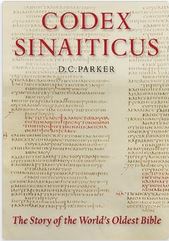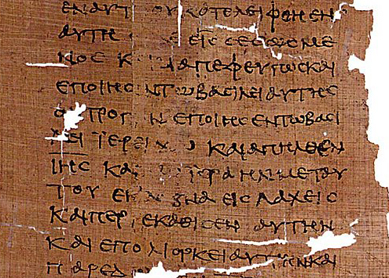Just imagine if we had copies of all the books written during the first flowering of the Greek genius from 800 B.C.E. to the Roman period. All these books actually were collected—in the great Library of Alexandria.
When not long after Alexander the Great’s death Ptolemy I became the ruler of Egypt, he decided to make the city of Alexandria the heart of Greek culture and science—in this it would surpass even Athens. He established a cultural center called the Mouseion (where our word museum comes from), a place where scholars and scientists could gather together and pursue their research.
A vital part of this research center was a library. Ptolemy and his successor Ptolemy II resolved to make it the best and most complete collection of books (really, papyrus scrolls) in the Greek world. They used their royal power to make this plan a reality. When travelers from other cities arrived in Alexandria, they were compelled to declare any books in their possession. Copies were made and the originals returned to their owners (if they were lucky). Within fifty years, the library had more than a half-million volumes, and the number kept increasing.
In at least two respects, the library of Alexandria can be linked to the Bible. First, King Ptolemy and his scholars were not interested only in Greek culture. An aspect of their scientific enterprise was a broader interest in other cultures. A Jewish document written in Greek, the Letter of Aristeas describes how the head of the library, Demetrius of Phalerum, told the king that the law books of the Jews also deserved a place in the library. But they had to be translated first. So he wrote to the high priest in Jerusalem, who sent a delegation of 72 elders to Alexandria to make the translation. This was the origin of the Greek translation of the Torah still known today as the Septuagint (“the Seventy”). It is the Bible that the New Testament quotes. Although the account in the Letter of Aristeas clearly has many legendary and unhistorical features, scholars today are now less inclined to think it wholly fanciful. The king may well have heard about the translation of the holy books of the Jews and consequently wished to include them in the Alexandrian library.
The second aspect of the library’s activities that is relevant to the Bible is the pursuit of scholarship. In the museum, scholars pored over the old manuscripts and developed techniques to determine the most accurate, earliest forms of texts. These techniques were used by early Christian scholars, and especially by the great church father Origen (189–253 C.E.), in their work on the text of the Bible.
But did the library still exist in Origen’s time? Some ancient reports say that the library was accidentally burned by the troops of Julius Caesar in 48 B.C.E., but this probably did not relate to the entire library. Sadly, however, it did later succumb to the destruction of war. Its magnificent holdings were lost. If only we still had them. In the late twentieth century, a new UNESCO-sponsored library was built in Alexandria. With its internationally acclaimed design, the new library—the Bibliotheca Alexandrina—focuses on building up a collection of books in English, French, and Arabic.
Bibliography
- MacLeod, Roy. The Library of Alexandria: Centre of Learning in the Ancient World. London: Tauris, 2000.
- Pollard, Justin, and Reid Howard, eds. The Rise and Fall of Alexandria: Birthplace of the Modern Mind. New York: Penguin, 2006.
- Canfora, Luciano. The Vanished Library: A Wonder of the Ancient World. Berkeley: University of California Press, 1989.



